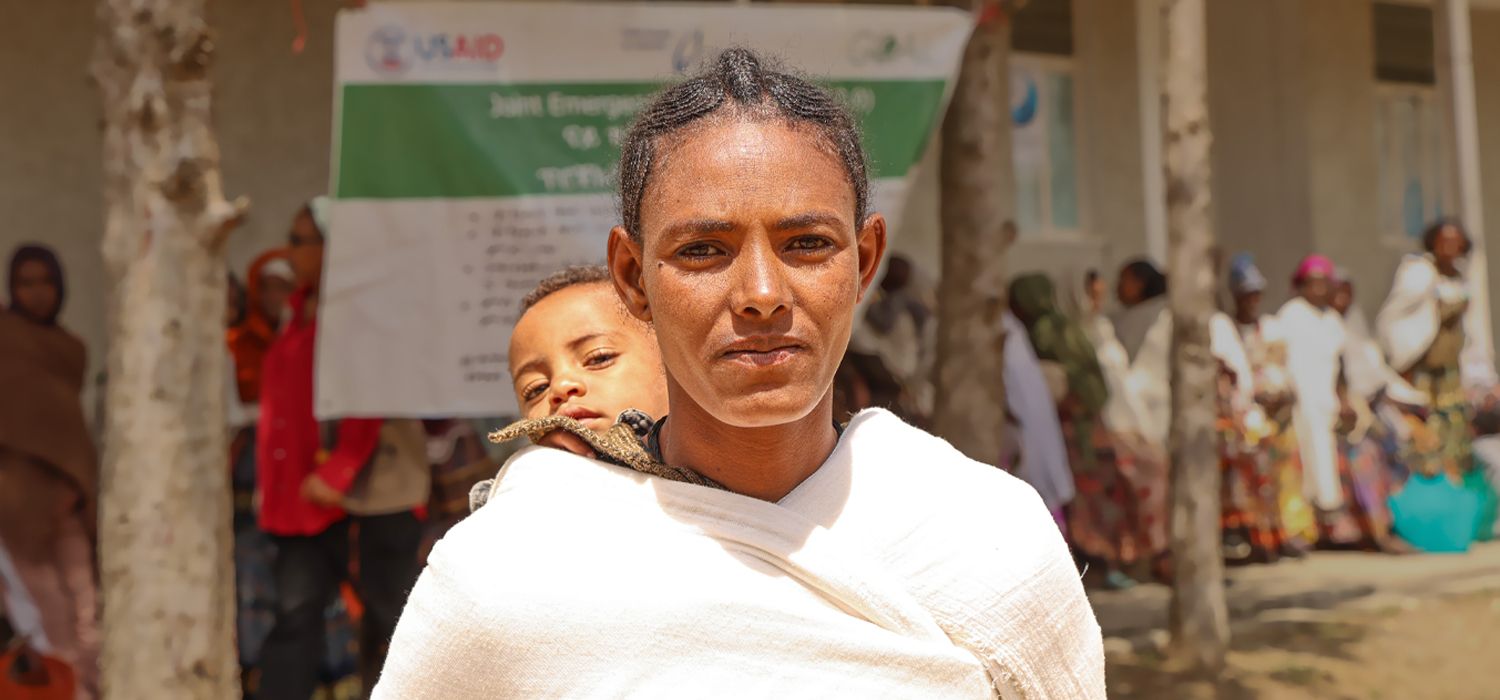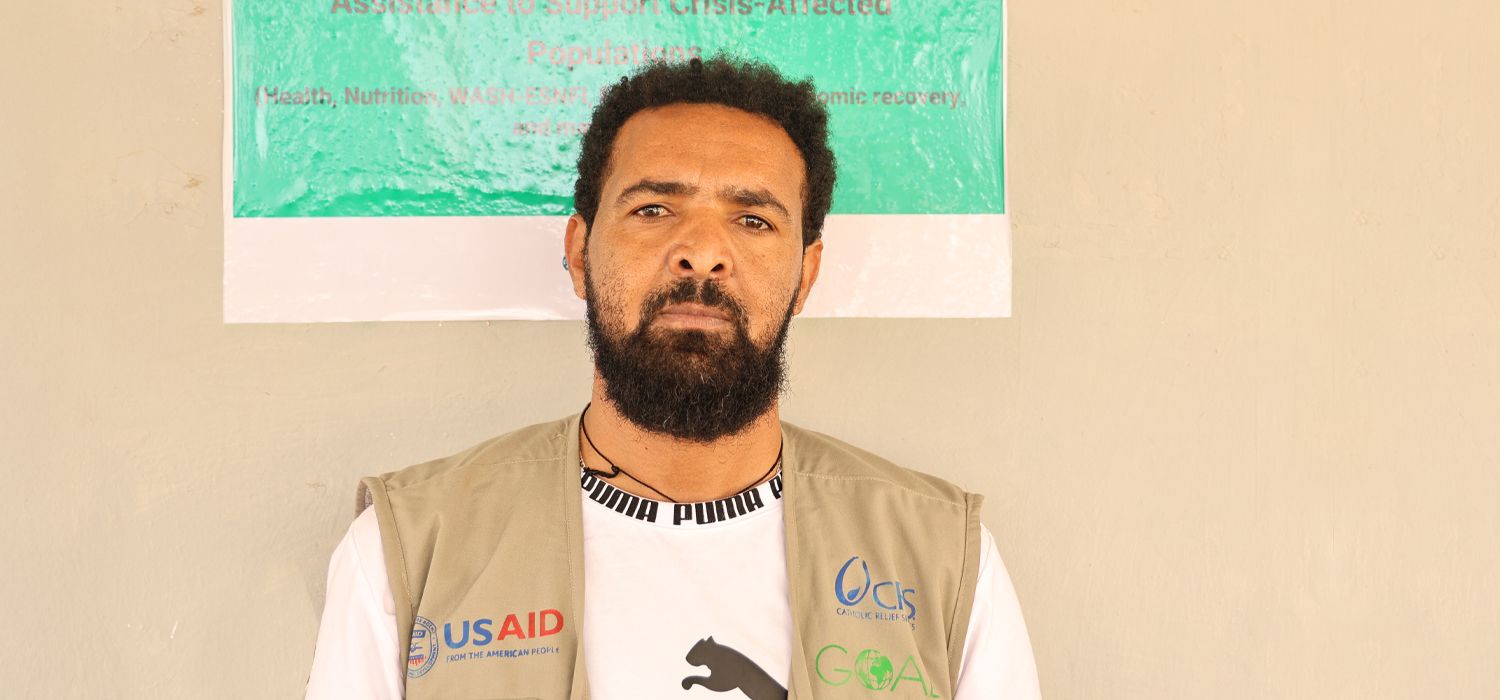 Stories
Stories
October 6, 2025 • 3 min read
In Tigray, northern Ethiopia, years of conflict and climate shocks have left many children malnourished and without access to essential nutrition services. GOAL, in partnership with Catholic Relief Services (CRS) through the US government-funded Joint Emergency Operation Program (JEOP), is responding across 16 districts in the region with early detection, therapeutic, and supplementary feeding services, as well as community education. Mothers like Medhin are now better equipped to care for their children.

Malnutrition remains a significant public health concern in Tigray, Ethiopia. Years of armed conflict, mass displacement, and environmental challenges have disrupted food supply chains and overwhelmed healthcare systems. Many families face extreme hardship in accessing nutritious food and essential health services. Particularly vulnerable are children under five and breastfeeding and pregnant mothers, who are at high risk of acute malnutrition. The collapse of infrastructure and lack of awareness about proper feeding practices have worsened the crisis, putting an entire community at risk. In response, GOAL is working through the Joint Emergency Operation Program (JEOP) consortium to provide a coordinated and sustainable response in affected communities, aiming to reduce the burden of acute malnutrition.
Coordinated Response Across Districts
Since the launch of the JEOP in Tigray, GOAL has been implementing life-saving nutrition interventions across 16 districts, under the leadership of Catholic Relief Services (CRS) and with funding from the US government. The program targets both the immediate and root causes of malnutrition by integrating early detection, therapeutic and supplementary food distribution, and capacity-building of local health systems.
Although the scale of the crisis differs across districts, the signs of malnutrition are evident everywhere. JEOP’s integrated approach helps ensure the timely identification of affected children while also educating communities about proper feeding practices and hygiene. Local health workers are trained to manage cases effectively and engage families in preventive care.
A Mother’s Journey: Medhin’s Story
Medhin Gebremedin, a 35-year-old mother of six from Degua Temben, noticed something was wrong with her youngest son, Abel. Unlike his siblings, Abel appeared frail, often cried, and lacked energy. Concerned, she brought him to the Alasa Health Centre, where he was diagnosed with severe acute malnutrition.
“They told me why he was behaving the way he did and why he didn’t have the same growth as his siblings. It was not easy for me to know that his condition is caused by malnutrition,” Medhin shared. “I may not have much, but I could have done better to prevent it with the available means I had.”
With the proper support, therapeutic food and continuous follow-up, Abel regained his strength and reached a healthy weight within a few weeks. Medhin now shares her experience with other mothers in her community, encouraging them to seek help early.
Strength in Partnership
The success of the intervention in Degua Temben reflects the strength of collaborative action between GOAL staff, the local health centre, and broader consortium partners. The combined efforts focus not only on treatment but also on long-term change through education and community engagement.

Berihu Birhane, GOAL’s zonal nutrition coordinator in Tigray, remarked, “We are grateful to the funding support that JEOP accessed from the US government and the lead and technical support from CRS. The project addresses both short-term pressing needs and long-term behavioural and dietary practices through health and nutrition education. I hope the collaboration will continue until a meaningful change is achieved and the community passes this critical period of food insecurity and starts to adopt the lessons into their day-to-day life.”
With consistent partnership, training, and community involvement, the JEOP project continues to address urgent nutrition needs while laying the foundation for a healthier, more resilient future in Tigray.
